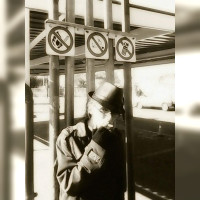Let’s face it, sometimes criticism sucks. It can come in the form of a scathingly bad review, or it can just be someone who reads your latest and calls you to say, “That wasn’t quite as great as we expected.” It’s no walk in the park, and I know that for too many authors it feels like a full-scale attack. (To some, rejection feels like much of the same.) It’s normal to feel that way, but you’ll be glad to know that rejection and criticism can both be great things. Here’s how to turn rejection and deal with criticism…
The value of beta-readers.
Every author has someone who reads their work first. In many cases it’s a best friend, a partner or someone off the internet. Beta-readers are there to aid in the process: They tell you when things are working great, and they point out when they aren’t. They can help quiet down the internal panic most authors have. Hey, would you rather have a trusted beta-reader tell you this piece sucks or wait for the public to do it?
Tastes will differ.
Have you liked every book you read? (Note: nope.) The same is true for every magazine you’ve picked up and every movie you’ve seen. Tastes are different, people are diverse, and not everyone is going to like the same story the same way. Make peace with this and you can likely deal with a good third of criticism you’ll get in your entire writing career.
It’s never personal (even when it is).
Some reviews are particularly nasty. (For Wuthering Heights, reviewer James Lorimer said “…all the faults of Jane Eyre … magnified a thousand fold, and the only consolation which we have in reflecting upon it is that it will never be generally read.” Ouch!) It’s easy to take that personally, right? Don’t. Learn that early. It’s never personal, even when it is.
You can learn from it.
Rejection and criticism can both be great stepping stones to something else. Some criticism, though not all by any means, is useful. Once you get past the anger of a bad review, read it again and ask yourself if there’s anything you can learn from this.
Here’s what rejection really is.
Rejection is good, and it takes all of the sting out of it once you realize that. You see, rejection means one of two things. (1) This isn’t right for us, or (2) This isn’t right for us right now, but send again. This opens up a world of opportunity: You have a fully completed story or article which you can send to someone else (and, eventually, it will be right for them.). Also, rejection means that you just met an editor you didn’t know before. Congratulations: you’ve expanded your network.
Criticism on a public forum.
Social networking has taken critique to entirely new heights. Now people can criticize you, personally, without going through hoops. Always take care with social networking – professional versus personal profiles – and don’t get wrapped up in a discussion, bad review or fight to the point where it’s doing more harm to you than good. Like martial arts, it’s better to back away.
Fighting fire with fire.
Speaking of which, never—and this means never—fight fire with fire. Do not respond to a bad review with a vengeful letter. Do not make inflammatory comments on their page. Reputation is everything, and you can’t afford to damage it: Yes, people have gotten sued for things they said on social networking, and you really don’t want to be one of them.
The dangerous ones (dealing with nutters).
There are times where criticism (especially online) ventures past simple playground insults and into more dangerous waters: Over the years, I’ve experienced everything from mild death threats to armed people walking into my house. Eventually, you’ll get a nutter (hopefully not more than that), and it can be scary. Make sure you know what laws apply in your state, what warrants a restraining order and how to get one. Don’t give out your personal information – to anyone – and make sure nobody can get this personal information from your social networking profiles. You would much rather be safe than sorry. This is your career after all.
Ending notes.
You’re a professional, even if you aren’t writing for a living yet. Both rejection and criticism are two integral parts of the writing process. Yes, you’ll run into them, but it’s how you deal with these things that’s going to make all the difference.




